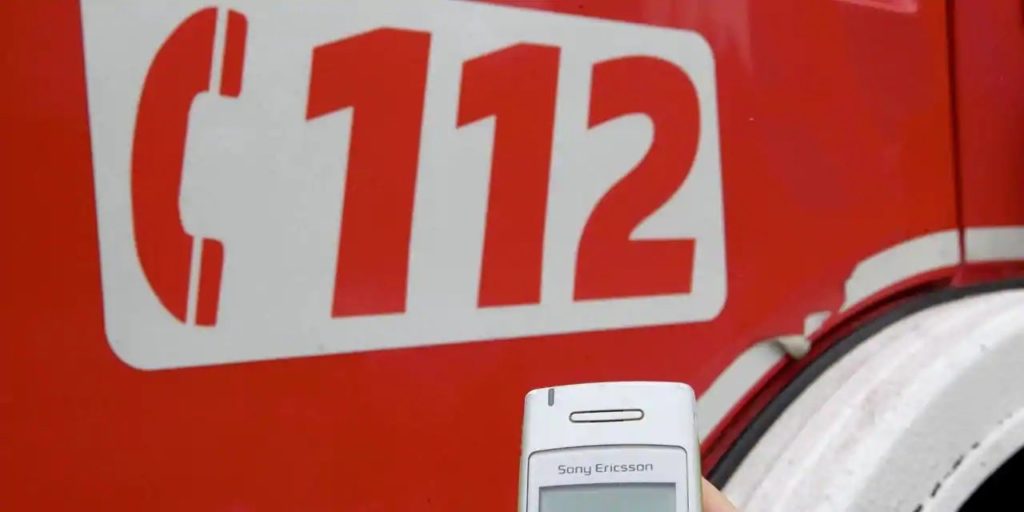The EU single emergency number 112 has been used for 30 years. During the coronavirus crisis, the effectiveness of the 112 number and national emergency numbers has been tested to the breaking point.
In for example Belgium, the country’s main emergency telephone numbers broke down for one night on 7 January. The problem affected the numbers 100 (ambulance and fire service), 101 (police) and 112, (52 % of all calls).
According to a Commission report last December, in 2019 end-users in the EU called 112 close to 150 million times. While the number of calls to ‘112’ remained at the same level as the year before, the total number of emergency calls dropped by 4.5% to 267 million. Calls to ‘112’ represented 56% of all emergency calls.
‘112’ is the single emergency number in Denmark, Estonia, Finland, Malta, the Netherlands, Portugal, Romania and Sweden and, among the EEA countries, in Iceland.
However, only 20% of calls to ‘112’ in the EU are placed in these countries. The large majority of calls to ‘112’ are placed in member states where national numbers are still in use. In these member states, the use of the single European emergency number varies largely, from 9% in France to 99% in Bulgaria.
Calls from mobile phones largely outweighed the number of calls from fixed phones. On average, 73% of the calls were placed from mobile phones. However, the use of mobile phones for emergency communication purposes varies significantly across Member States, from 55% in Croatia and Luxembourg to 97% in Czechia and 98% in Latvia.
To raise awareness about the emergency number, February 11 marks ‘112 Day’. Commemorating its 30th anniversary, Thierry Breton, Commissioner for the internal market, said yesterday that, “112 has been keeping Europeans safe, allowing them to easily reach emergency services wherever they are in the EU. All citizens should be aware of the single EU number.”
“Member States should ensure that the latest available technology is used to efficiently respond to callers in distress,” he added and referred to the EU financed Advanced Mobile Location (AML) system which enables exact location of callers using smartphones.
When a caller dials 112 from their smartphone, AML uses the phone's functionalities and the EU's Galileo satellite navigation system to accurately and efficiently transmit the caller's location to emergency services.
In fact, as of 21 December 2020, an EU directive on electronic communications networks makes mandatory the availability of not only network-based but also of the more accurate handset-derived location information to the most appropriate Public Safety Answering Point systems (PSAP).
According to the Commission’s estimates, in a 10-year perspective AML could potentially save more than 10,000 lives in total in the EU. Meanwhile, AML could positively impact over 100,000 lives in total in the EU.
AML is available in 19 Member States, Iceland and Norway. The list of the Member States include Belgium, Latvia, Lithuania, Croatia, Malta, Czechia, Netherlands, Denmark, Estonia, Portugal, Finland, Romania, France, Germany, Slovenia, Greece, Hungary, Sweden, and Ireland. Only 6 Member States confirmed that handset-derived location is available for roaming end-users.
However, it may happen that although the national PSAP system is upgraded to receive AML, still up to 60-70% of the calls do not benefit from this very accurate location.
Among the main findings in the Commission report are data on response times. 21 Member States reported less than 10 seconds for the average answering time needed to get in contact with the emergency services. At the same time, in 12 Member States and Iceland at least 90% of the calls are answered within 10 seconds.
The report focuses on technical data on the electronic communication. A rapid response time does not necessarily mean that emergency aid and an ambulance is dispatched immediately or to all calling for help. A worrying number in the report is the ratio of false calls to the total number of emergency calls.
This number still varies considerably among the Member States. False calls are defined as calls that are not followed up with intervention or assistance from the PSAP or the emergency services. Whether Member States allocate enough resources to emergency call systems and related services (ambulances) is not monitored by the Commission.
A source in the Commission summarised that EU law ensures that citizens may call free of charge the appropriate Public Safety Answering Point (PSAP) in case of emergency. However, the operational follow-up, the organisation of emergency services and their operational effectiveness is under the exclusive national competence of the Member States.
M. Apelblat
The Brussels Times

